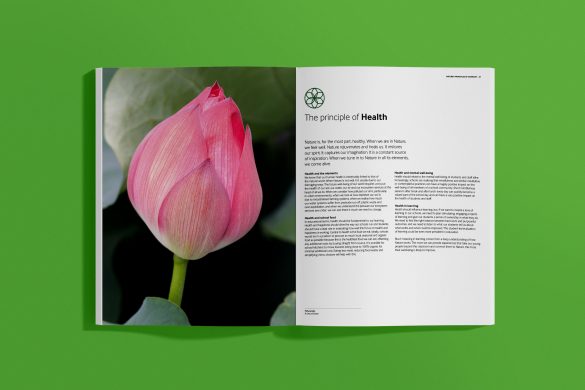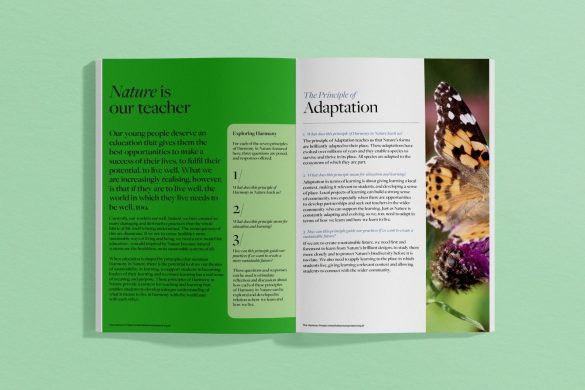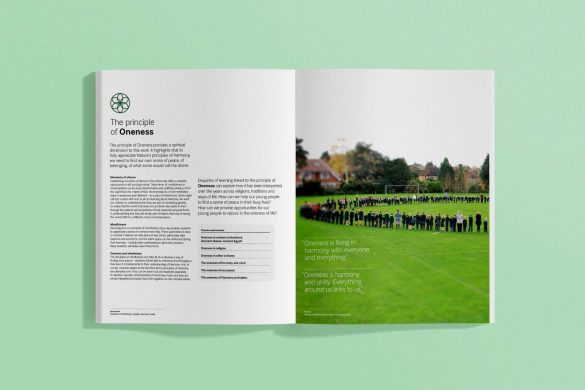What can we learn from the principle of Health?

We must understand how our own health depends on the health of the natural world, to make more sustainable choices
Nature is, for the most part, healthy – and when we are in Nature, we, too, feel well. Nature rejuvenates and heals us. It restores our spirit. It captures our imagination. It is a constant source of inspiration. When we tune in to Nature in all its elements, we come alive.
How can we plan teaching and learning that is based on the principle of Health?
In educational terms, health should be fundamental to learning. If we want the education we offer our young people to make them feel well, and if we want to inspire a love of learning in our schools, we need to plan stimulating, engaging projects of learning and give our students a sense of ownership in what they do. We need to find the right balance between hard work and purposeful outcomes, and we need to listen to what our students tell us about what works and what could be improved. This student-led evaluation of learning could be even more prevalent in education.
If we want to maximise the opportunities for students to feel well in Nature, we need to plan and provide experiences that take them beyond the classroom and connect them to Nature. The more we can do this, the more their well-being is likely to improve.
And, of course, when we develop a deep understanding of how Nature works, we start to see how our damaging ways put at risk not just the health of the natural world, but our own health, too.

How does teaching and learning based on the principle of Health allow us to explore issues of sustainability?
The principle of Health reminds us of the need for balance and the link between our own human health and the health of the natural world. When Nature is not well, it is usually due to human activity. The future well-being of our world requires us to put the health of our soil, our water, our air and our ecosystem services at the heart of all we do.
When we consider how polluted our air is, particularly in urban environments, when we look at how depleted our soil is due to industrialised farming systems, when we realise how much our water systems suffer from pesticide run-off, plastic waste and over-exploitation, and when we understand the pressure our ecosystem services are under, we can see just how much we need to change. The more we understand what it means to be healthy, the better our choices will be in learning to live and work that way.
Which other areas of school life can be improved by an understanding of the principle of Health?
Health and happiness should drive the way our schools run, and students should have a lead role in evaluating how well this focus on health and happiness is working. Central to health is the food we eat. Ideally, schools would be in a position to procure as much local, seasonal and organic food as possible because this is the healthiest food we can eat, offsetting any additional costs by buying straight from source. It is possible for school kitchens to move towards being close to 100% organic for minimal additional cost. Eating less meat, reducing food waste and simplifying menu choices will help with this.
When we talk about health in schools, we should focus on the mental well-being of students and staff alike. Increasingly, schools are realising that mindfulness and similar meditative or contemplative practices can have a hugely positive impact on the well-being of all members of a school community. Short mindfulness sessions after break and after lunch every day can quickly become a valued part of the school day and can have a very positive impact on the health of students and staff.
Themes for enquiries of learning linked to the principle of Adaptation could include:
- Healthy me
- The health of our soil, air and water
- Healthy food
- Health and exercise
- Healthy play, today and in the past
- The health of our world
Find out more about how this principle of Harmony can inspire ideas for enquiry-based teaching and learning and inform medium-term planning.



